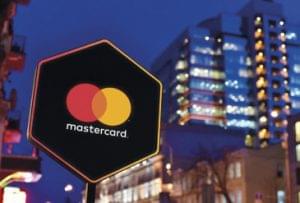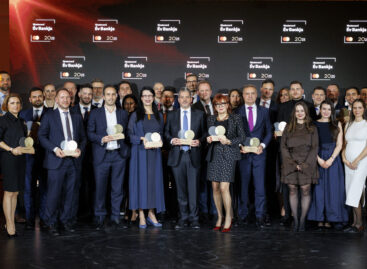Cautious optimism: this is how domestic SMEs manage their finances and digitalize
Hungarian SMEs are planning cautiously: while the economic environment holds challenges for them, digital solutions are playing an increasingly important role in their operations. According to the research, the demand for financial services and digitalization maturity increase with company size. Mastercard aims to provide businesses with tools that support their growth and adaptation to the changing market environment.
 Based on the representative research, businesses expect cautious, slow growth in the coming years. The biggest challenge for them is the increase in energy and raw material prices, as well as wages, and the economic environment in general. In addition, they increasingly perceive the intensification of market competition, especially due to the rise of global players. The survey also shows that KATA and micro-enterprises are the least optimistic about future prospects, and they tend to plan only for the short term.
Based on the representative research, businesses expect cautious, slow growth in the coming years. The biggest challenge for them is the increase in energy and raw material prices, as well as wages, and the economic environment in general. In addition, they increasingly perceive the intensification of market competition, especially due to the rise of global players. The survey also shows that KATA and micro-enterprises are the least optimistic about future prospects, and they tend to plan only for the short term.
The research also examined the financial habits of domestic SMEs and the development of their banking relationships over a 5-year period. It is typical that the larger a business is, the more banking products and services it uses. A business current account is considered a basic requirement; 97% of the surveyed businesses have one. In addition, a business bank card is also natural for the majority (78%) and is used for more and more purposes: primarily for purchasing IT, telecommunications or other equipment, maintenance expenses, as well as for paying accommodation, meals and travel expenses. Medium-sized businesses now also use foreign currency accounts, foreign currency cards, bank guarantees and insurance products. These services help them to appear on international markets and manage risks. Different trends can be observed in the management of cash flows: while the use of cash is still justified in certain situations (for example, in order to ensure fast cash flow) – mainly among KATA and micro-enterprises – in the case of small and medium-sized businesses, outgoing and incoming invoices are typically settled by transfer. In larger companies, a gradual decline in the role of cash is already a trend. The same can be seen in payments: the larger a company is, the more fundamental it is to accept digital payments, while the preference for accepting cash payments is mostly characteristic of the micro segment.
Related news
SMEs expect a profitable year in 2026
🎧 Hallgasd a cikket: Lejátszás Szünet Folytatás Leállítás Nyelv: Auto…
Read more >Tuned to efficiency
🎧 Hallgasd a cikket: Lejátszás Szünet Folytatás Leállítás Nyelv: Auto…
Read more >Related news
II. Green Gastronomy – Marketing Communication Workshop organized by the MMSZ HoReCa and Green Section
🎧 Hallgasd a cikket: Lejátszás Szünet Folytatás Leállítás Nyelv: Auto…
Read more >Retail sales of organic products in Hungary increased by 13.9% – our country is the second fastest growing market in the European Union
🎧 Hallgasd a cikket: Lejátszás Szünet Folytatás Leállítás Nyelv: Auto…
Read more >Nearly 140 domestic suppliers, 60% growth – SPAR Regions Treasures program accelerates with AI solutions
🎧 Hallgasd a cikket: Lejátszás Szünet Folytatás Leállítás Nyelv: Auto…
Read more >







